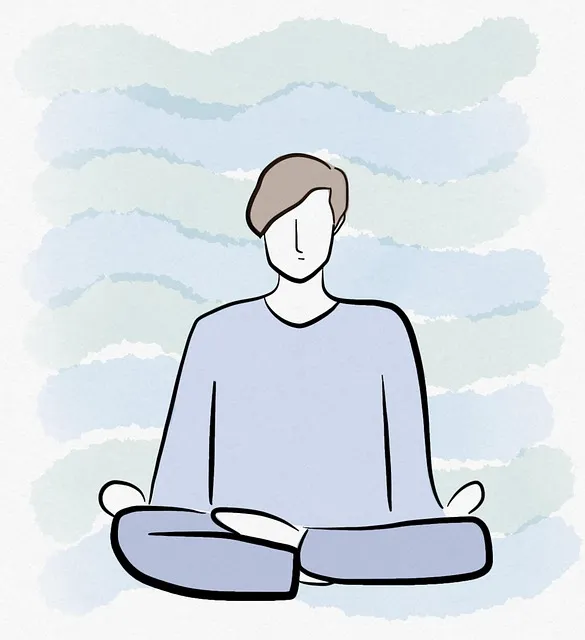Resilience is key to navigating life's challenges, especially for those with mental health concerns. Kaiser Permanente in Colorado Springs offers Recovery-Focused Modeling (RFM), an effective tool that empowers individuals to recover and rebuild after traumatic experiences. Through understanding strengths, resources, and coping skills, people can enhance mental wellness, develop self-care practices, and achieve lasting positive change. Kaiser's holistic approach includes individual therapy, group sessions, workshops, and crisis intervention services to cater to diverse needs. Building resilience through exercises like mindfulness and structured self-care routines is crucial for navigating challenges in Colorado Springs.
In today’s fast-paced world, building resilience is key to navigating life’s challenges. One powerful framework gaining traction is RFM (Resourcefulness, Flexibility, and Mastery), which fosters adaptability in the face of adversity. This article explores how understanding RFM can enhance mental well-being. We delve into Colorado Springs’ Kaiser Mental Health Services, renowned for their comprehensive approach, and present practical exercises to integrate RFM into daily routines, ultimately strengthening resilience. Discover how these strategies can empower individuals to thrive despite life’s curveballs.
- Understanding RFM and Its Role in Resilience Building
- Exploring Kaiser's Mental Health Services in Colorado Springs
- Practical Exercises to Enhance Resilience in Daily Life
Understanding RFM and Its Role in Resilience Building

Resilience is a vital asset in navigating life’s challenges and uncertainties, especially for individuals dealing with mental health concerns. In this context, RFM (Recovery-Focused Modeling) emerges as a powerful tool to foster resilience and promote healing. This approach, widely utilized in mental wellness services, such as those available at Kaiser in Colorado Springs, focuses on empowering individuals to recover and rebuild their lives after traumatic experiences or periods of struggle.
By understanding one’s strengths, resources, and coping skills (the core components of RFM), individuals can enhance their mental wellness and develop effective self-care practices. The process encourages personal growth, enabling folks to build resilience that goes beyond simply surviving hardships; it’s about thriving and achieving a sense of fulfillment despite challenges. This method has proven to be instrumental in coping skills development, helping people transform their lives and create lasting positive change.
Exploring Kaiser's Mental Health Services in Colorado Springs

Colorado Springs residents seeking mental health support have a valuable resource in Kaiser Permanente. This healthcare provider offers a range of services designed to enhance mental well-being and foster resilience, including specialized programs for various age groups and needs. By focusing on evidence-based practices, Kaiser helps individuals develop essential coping skills and promote positive thinking, ultimately strengthening their ability to navigate life’s challenges.
The organization’s comprehensive approach includes individual therapy, group support sessions, and innovative training like social skills development workshops. These initiatives cater to diverse populations, ensuring that everyone from children to adults can access the care they need. Through these mental health services, Kaiser empowers Colorado Springs residents to build resilience, fostering a sense of stability and empowerment in their daily lives.
Practical Exercises to Enhance Resilience in Daily Life

Incorporating resilience into daily life is a powerful tool for navigating challenges, and Colorado Springs offers various resources, including Kaiser’s mental health services, to support this journey. Simple yet effective exercises can significantly enhance one’s ability to cope with stress and adversity. Starting with self-awareness exercises allows individuals to recognize their emotional triggers and develop strategies to manage them effectively. Techniques such as mindfulness meditation and journaling can help individuals gain clarity and perspective during difficult times.
Additionally, creating a structured self-care routine is vital for maintaining resilience over time. This might include regular physical activity, adequate sleep hygiene, and engaging in hobbies or activities that bring joy and relaxation. For those seeking more targeted guidance, Crisis Intervention Services are available to provide immediate support and skills training to help individuals manage intense emotions and challenging situations.
In conclusion, understanding RFM (Resilience Factor Model) and its role in building resilience is a powerful tool for navigating life’s challenges. As discussed, Kaiser’s mental health services in Colorado Springs offer valuable resources for those seeking support. By incorporating practical exercises into daily routines, individuals can enhance their resilience, fostering a more robust and adaptable mindset. Remember that building resilience is an ongoing process, and with the right strategies, one can navigate life’s storms with greater ease.






